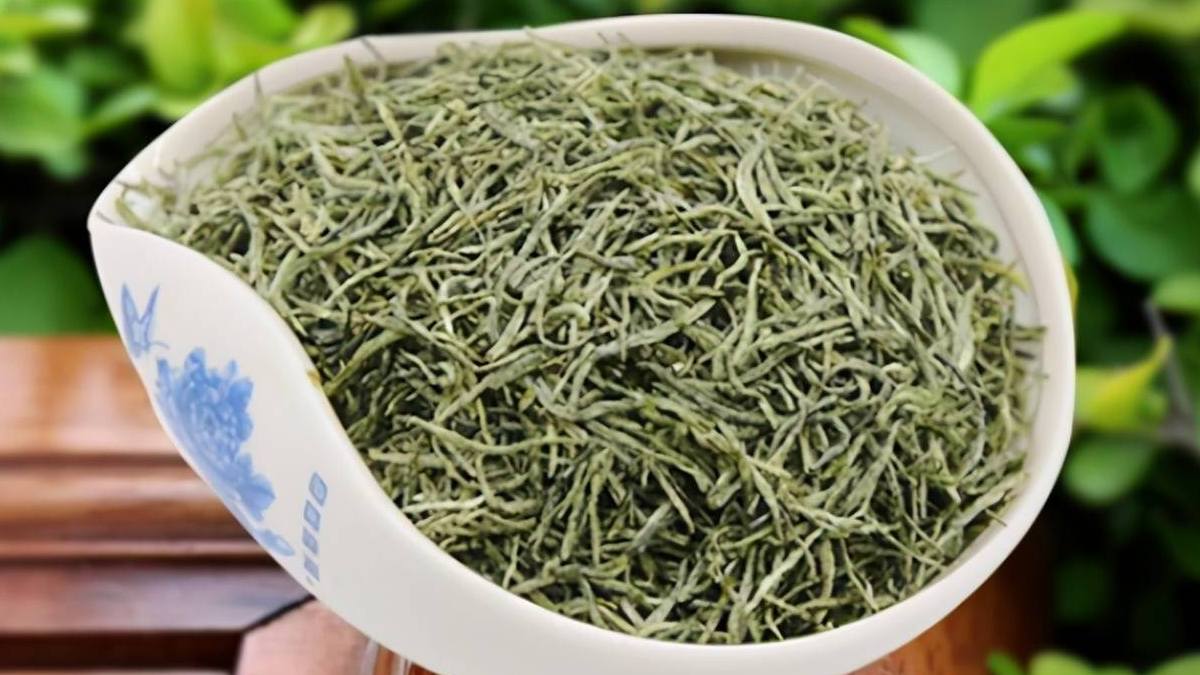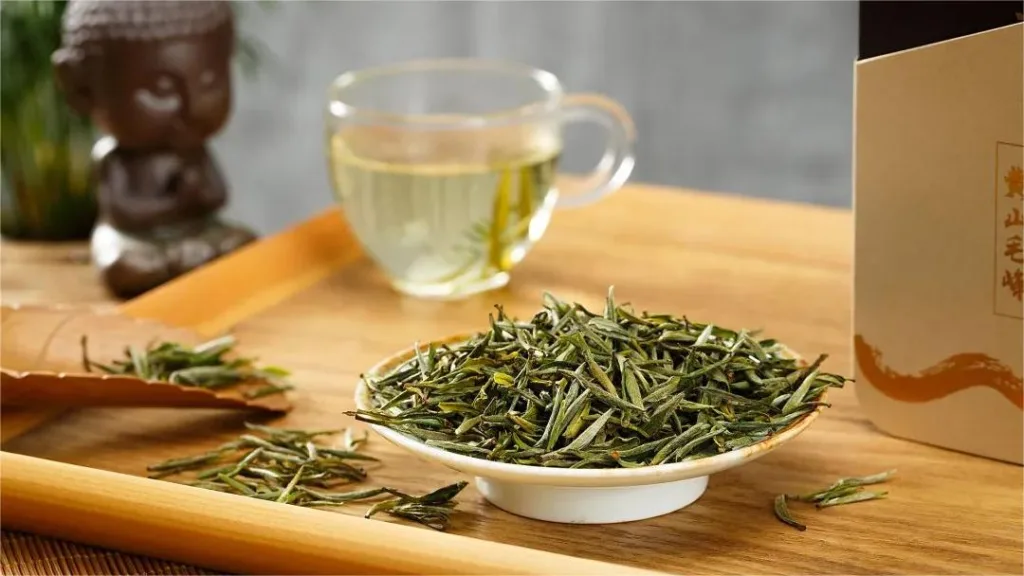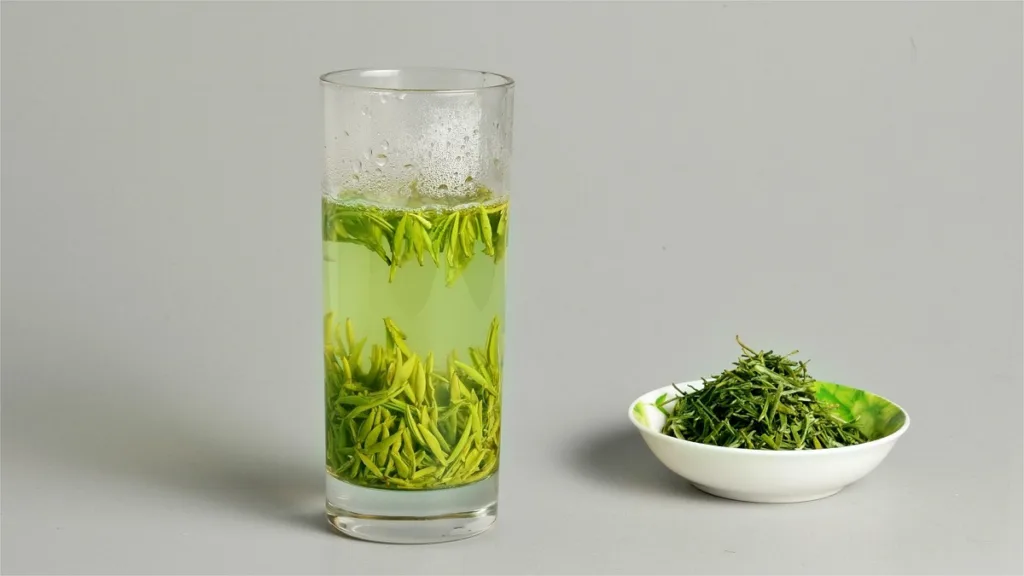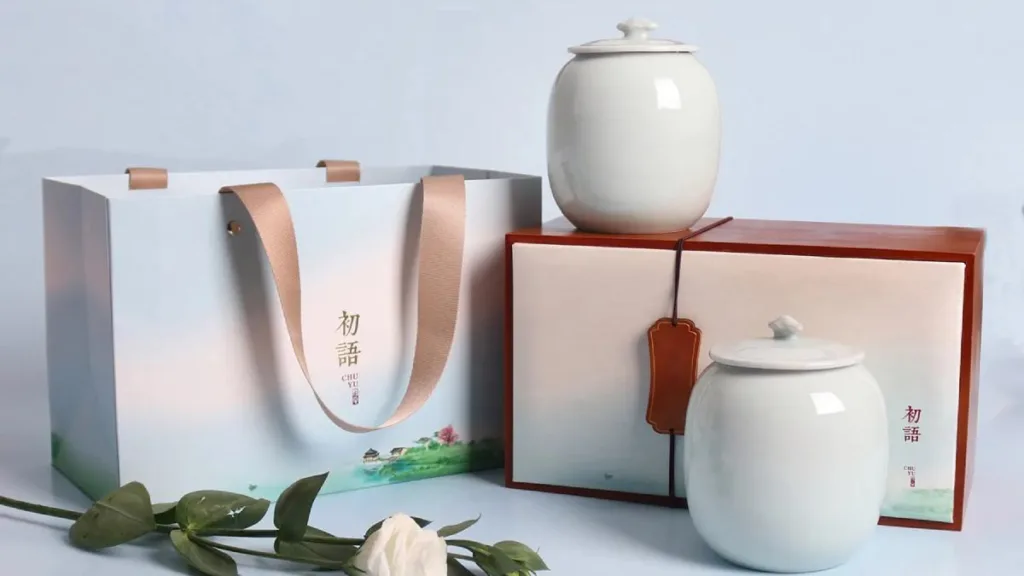Xinyang Maojian Tea, also known as Yu Mao Feng, is a renowned green tea and one of China’s ten famous teas. It is celebrated for its unique flavor, rich history, and distinctive processing methods. Grown in the areas surrounding Xinyang city, including Shixian, Pingqiao, and Luoshan counties in Henan province, this tea has become an emblematic product of the region. Let’s dive into the history, brewing methods, and the numerous health benefits associated with Xinyang Maojian Tea.
Historical Roots
The origins of tea production in China date back over three thousand years to the Zhou Dynasty. The Xinyang region has a deep-rooted history of tea cultivation and is known to be one of the early centers of tea production. During the Han Dynasty, the area now known as Xinyang was recognized for its ecological advantages and fertile land, making it ideal for tea cultivation.
Xinyang’s reputation as a tea-producing region continued to grow, and during the Tang Dynasty, Xinyang’s teas were celebrated for their high quality. They were considered tributes to the imperial court and were highly sought after in the domestic and international markets. This history of tea cultivation and craftsmanship established Xinyang as a vital region in China’s tea heritage.
Geographic Significance
Xinyang Maojian Tea is primarily produced in the region around Xinyang city, which includes the Shixian, Pingqiao, and Luoshan counties. This area is often referred to as the “Five Clouds, Two Springs, and One Village” (五云两潭一寨), signifying the key tea-producing locations where the finest Xinyang Maojian Tea is cultivated.
Recognition and Awards
Xinyang Maojian Tea has earned numerous accolades and awards over the years. In 1915, it received a gold medal alongside Maotai liquor at the Panama-Pacific International Exposition. This recognition marked its reputation as a top-quality Chinese tea. In 1990, Xinyang Maojian Tea participated in a national evaluation and won first place for overall green tea quality, cementing its status as the “King of Green Tea.”
Furthermore, Xinyang Maojian Tea has consistently ranked high in the list of China’s regional tea brands, with a brand value of 59.91 billion yuan in 2017, placing it second on the list of the most valuable tea brands in the country.
Brewing Method
Brewing Xinyang Maojian Tea is an art form in itself, following a specific process that enhances the taste and aroma of the tea. Xinyang tea lovers adhere to a ten-step process that combines traditional tea-drinking customs with the distinct characteristics of Xinyang Maojian Green Tea.
- Appreciating the High-Quality Tea Leaves: Begin by selecting the finest Xinyang Maojian tea leaves from the tea container.
- Using Quality Water: Choose high-quality water, ideally spring water, heated to approximately 80 degrees Celsius for brewing. Xinyang Maojian Tea is known for its ability to thrive in these conditions.
- Warming the Teapot and Cups: Warm the teapot and cups using hot water from the kettle.
- Placing Tea Leaves in the Teapot: Add a small amount of water to the teapot and place the Xinyang Maojian tea leaves inside, typically using a teaspoon to ensure gentle handling.
- Rinsing the Tea Leaves: Pour out the initial tea infusion to rinse and clean the tea leaves.
- Soaking the Tea Leaves: Pour hot water over the tea leaves in a circular motion, allowing the tea leaves to soak and expand.
- Second Infusion: After a few moments, add more hot water and continue steeping the tea. This process allows the tea’s flavors to fully bloom.
- Pouring into the Tea Sea: Pour the tea from the teapot into a tea sea (a container designed to pour and collect tea). This ensures that the flavor is evenly distributed.
- Serving: Pour the tea into a teacup, filling it to around 70% full, leaving some space for the aroma to waft.
- Enjoying with Guests: Share the tea with guests and enjoy it together. Sip the tea slowly, savoring its rich aroma and delicate flavor.
Health Benefits of Xinyang Maojian Tea
Xinyang Maojian Tea offers various health benefits attributed to its unique chemical composition. This tea contains more than 500 different chemical components, including caffeine, catechins, proteins, amino acids, sugars, vitamins, lipids, organic acids, and 28 types of inorganic nutrients, all in harmonious proportions.
- Enhanced Alertness: The caffeine content in Xinyang Maojian Tea can stimulate the central nervous system, improving focus and reducing fatigue. It is known to increase alertness and productivity.
- Diuretic Effects: Compounds like caffeine and theophylline in the tea have diuretic properties. This can help alleviate conditions related to water retention and edema, aiding in the treatment of jaundice-related hepatitis.
- Cardiovascular Benefits: The theophylline found in Xinyang Maojian Tea can have cardiovascular benefits. It helps relax smooth muscles, facilitating blood circulation and aiding in the management of conditions like bronchial asthma and bronchospasm.
- Atherosclerosis Prevention: The tea’s catechins and vitamin C content can help reduce cholesterol and lipid levels, contributing to a lower risk of developing atherosclerosis.
- Antibacterial and Antimicrobial Effects: The tea’s polyphenols and tannic acids can act on bacteria, effectively killing or inhibiting their growth. This makes it useful in treating gastrointestinal infections and skin conditions.
- Weight Management: Xinyang Maojian Tea can help regulate fat metabolism, making it useful for those looking to manage their weight. Oolong teas like this one are particularly effective in breaking down fats and proteins.
- Dental Health: Fluoride content in Xinyang Maojian Tea enhances dental health. Fluoride ions have an affinity for calcium in teeth, forming a less soluble “fluorapatite,” which strengthens tooth enamel and increases resistance to acid attacks.
- Anticancer Effects: Various compounds found in Xinyang Maojian Tea, such as flavonoids, exhibit anti-cancer properties. These substances have the potential to inhibit cancer cell growth and reduce the risk of certain types of cancer.
- Skincare: The high vitamin C content in Xinyang Maojian Tea can protect the skin from aging, clear impurities, and promote overall skin health.
In conclusion, Xinyang Maojian Tea is a gem among Chinese green teas, with a rich history, distinctive brewing methods, and a wide range of health benefits. It continues to be celebrated for its exceptional quality and flavor, cementing its status as one of China’s top ten famous teas. Whether enjoyed for its delightful taste or cherished for its health benefits, Xinyang Maojian Tea remains a treasure in the world of tea.




